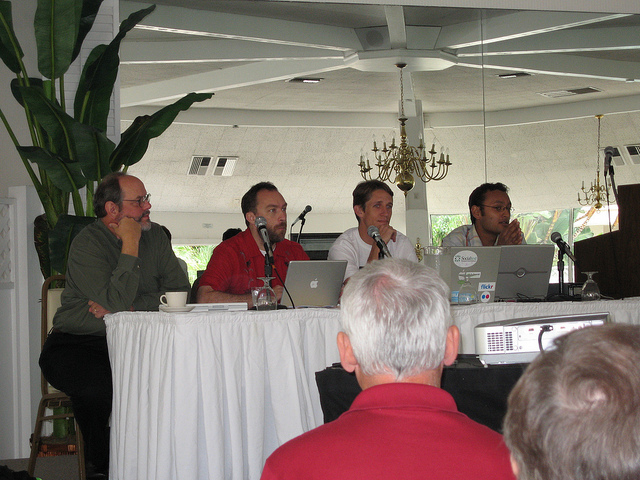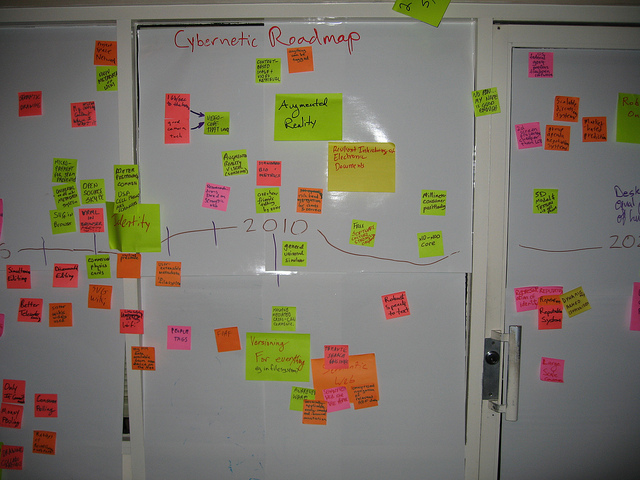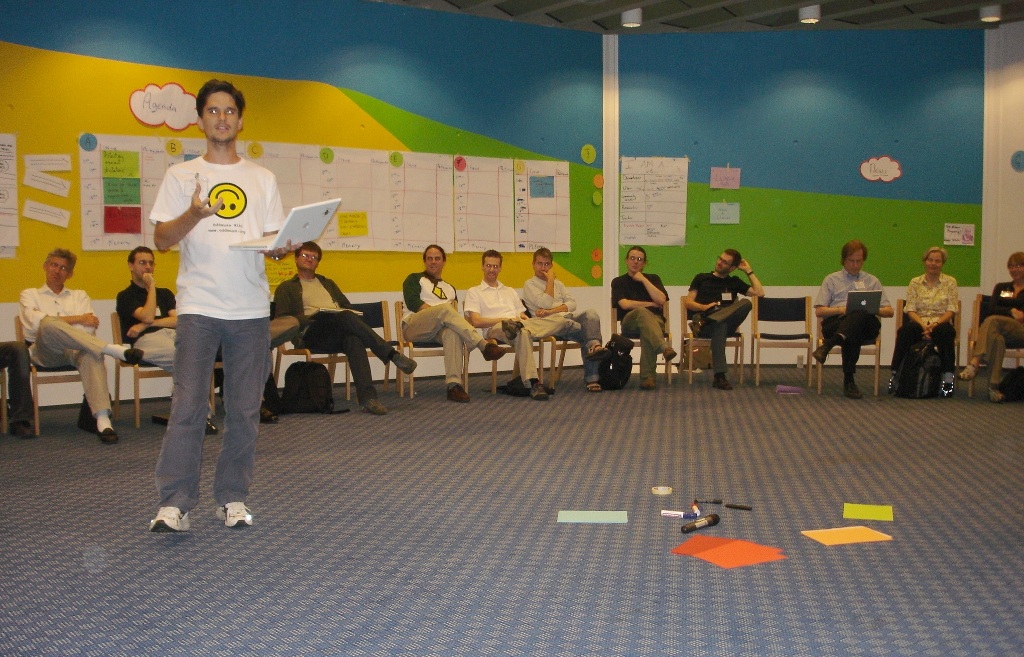WikiSym, as you may know, is about collaboration — open collaboration, in which people come together on equal footing (egalitarian), where they are valued for their contributions (meritocratic) and where they come not only to listen but to contribute and help form the conference (self-organizing). A wiki specifically is a technology that enables such collaboration, but of course there are other technologies like micro-blogging, traditional blogs, and forums. WikiSym is home to the research and practice of all of these technologies, their applications, and social implications.
One such “technology” is open space, a meeting facilitation technique. It is officially called open space technology to distinguish it from open space preserves, which are about wildland. Open space helps people like event organizers and participants to run an egalitarian, meritocratic, and self-organizing process. Participants are pulled into creating the event, bringing their problems and their expertise to the table. Open space itself then is about the techniques that help participants form a joint agenda, negotiate and allocate time-slots, and then meet and discuss their issues until it is time to move on to the next topic and/or group.
At WikiSym, we have been using open space since 2006, after we had first learned about it (and its wiki-ness) in 2005 (the first WikiSym). Open Space is strong at WikiSym and with WikiSym 2010 we just passed the 5-year anniversary of open space at WikiSym. The symposium organizers, in the run-up to the event, create the traditional program of invited talks and peer-reviewed research and practice talks, as well as a host of other events. They are placed on to the agenda (schedule) and distributed evenly. When WikiSym starts, however, after Open Space’s opening circle participants enhance and extend the agenda with their own topics. Academics may view Open Space as a well-organized form of BoF (birds-of-a-feather) sessions, but it is much more than that.
The beauty of Open Space is that it gives everyone a voice and the appropriate time and space to have it heard in a conversation. It is supported by well-defined best practices that have been developed in Open Space’s more than 25 years of history. Below, you can find some visual impressions from open space at WikiSym.

Panel at WikiSym 2005 with Ward Cunningham (creator of wikis), Jimmy (co-founder of Wikipedia), Ross Mayfield (co-founder of Socialtext), Sunir Shah, and more — no open space yet! (photo courtesy of Raymond King, taken from Flickr)

The Cybernetic Roadmap at WikiSym 2005 — participants struggeling to create open space where we hadn’t yet planned for it (photo courtesy of Raymond King, taken from Flickr)

Open Space Panorama at WikiSym 2006
(photo courtesy of Peter Thoeny)

Open Space at WikiSym 2006
(photo courtesy of Peter Thoeny)

Open Space session at WikiSym 2010
(photo courtesy of Eugene E. Kim, taken from Flickr)
The three Open Space facilitators who have worked with us in the past are Gerard Muller, Ted Ernst, and Karolina Iwa. We have been very happy with them and the only reason why we are switching facilitators is to accommodate schedules and locations as WikiSym is moving around the world.
Leave a Reply
You must be logged in to post a comment.